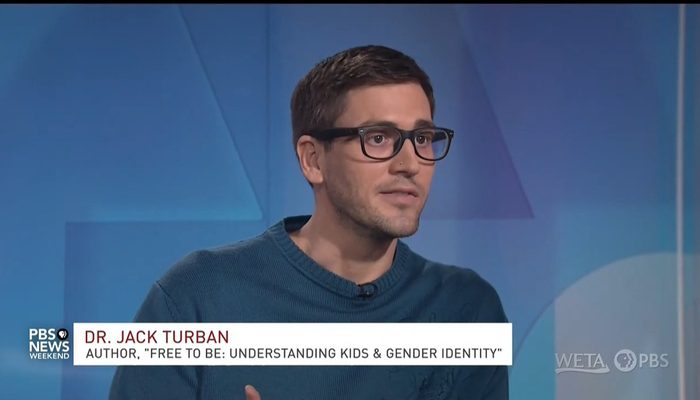PBS continued its relentless advocacy for transgender issues, featuring transgender youth researcher Dr. Jack Turban on Sunday evening. Dr. Turban is an avid promoter of controversial gender-identity surgeries and trans-related issues, such as biological boys participating in girls’ sports.
Despite mounting scientific evidence questioning the validity of gender identity treatments for children, PBS continues to champion these discussions. Dr. Turban’s interaction with the channel’s openly-gay anchor, John Yang, was no different.
Yang initiated the conversation with a statement from a pro-trans group, setting the tone for the discussion. He also perpetuated the pseudoscientific term “sex assigned at birth” as a roundabout method of identifying one’s sex. He implied that Turban was championing “science and medicine”.
Dr. Turban echoed this indirect language, floating the “sex assigned at birth” term. He seemed to downplay biological reality, favoring more individualized “gender identity.”
Conflict surfaces when discussing new laws restricting treatments for transgender minors. Turban argues that these regulations bring more harm than good for the kids, citing mental health improvement as the primary reason.
However, when Yang pointed out the recent pushback against puberty blockers and related treatments for trans children in the United Kingdom, Dr. Turban evaded the question. He did this while failing to provide substantial critique against the milestone Hilary Cass report, which called for restrictions on youth “gender care.”
Despite the theme of the segment, PBS neglected to include any real opponent of gender identify treatment for the young.
You won’t find a truly balanced discourse on gender identity treatments for young people on PBS. Even as the debate continues, they remain decidedly supportive of LGBTQ+ issues. Despite their claims of science backing, the crucial element of opposing viewpoints remains glaringly absent. It’s a clear reminder of the need for multiple perspectives in any conversation as crucial as this one.
A tale of two truths, this discourse convoluted the objectively concrete idea of biological sex, overshadowing it with the subjective and variable concept of “gender identity.” While it’s important to recognize and respect individual perspectives and experiences, balanced and objective discussions are critical while dealing with sensitive and complex issues like gender identity treatments for young people. So, remember, don’t settle for a singular perspective; seek the complete picture.



